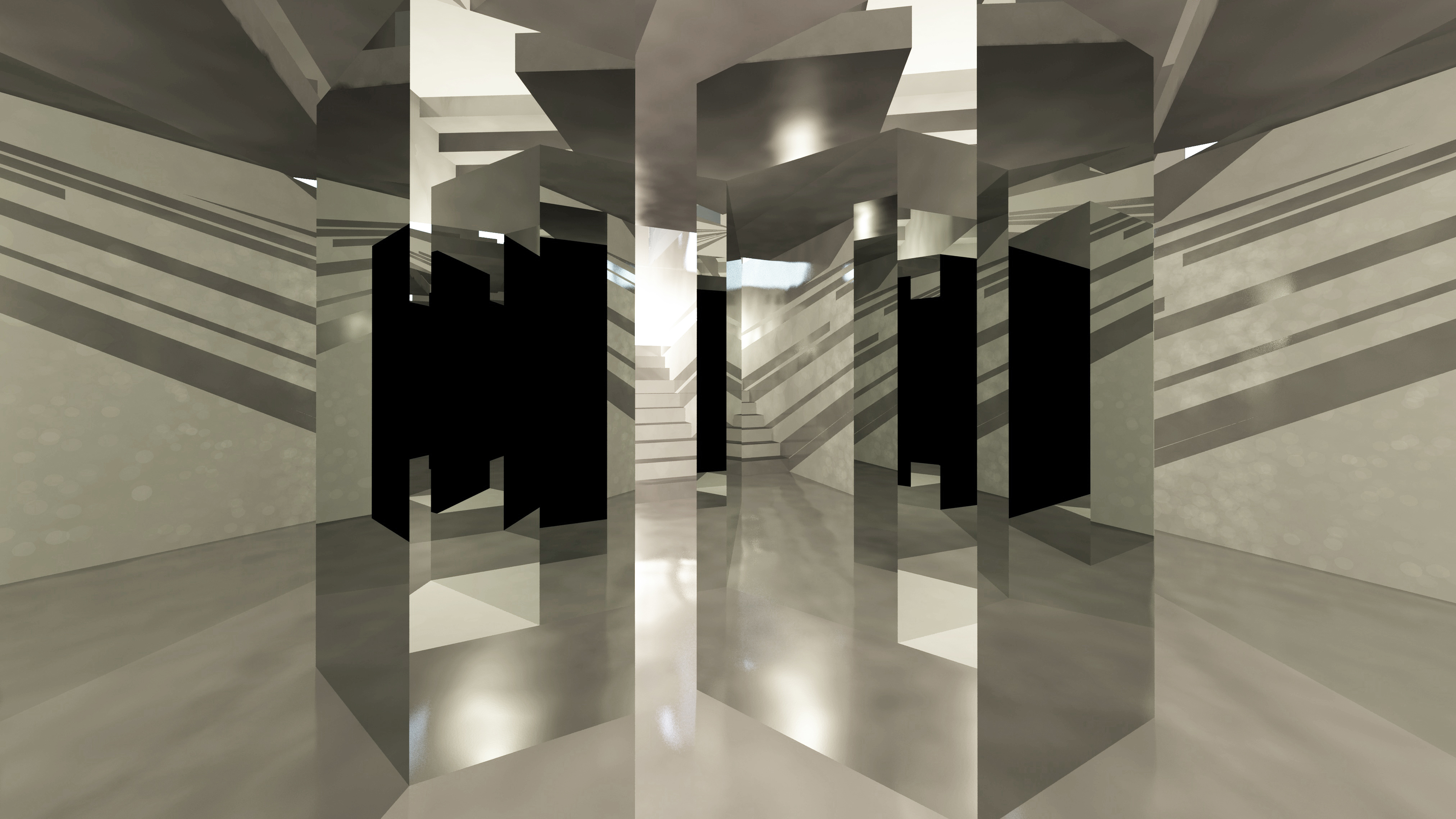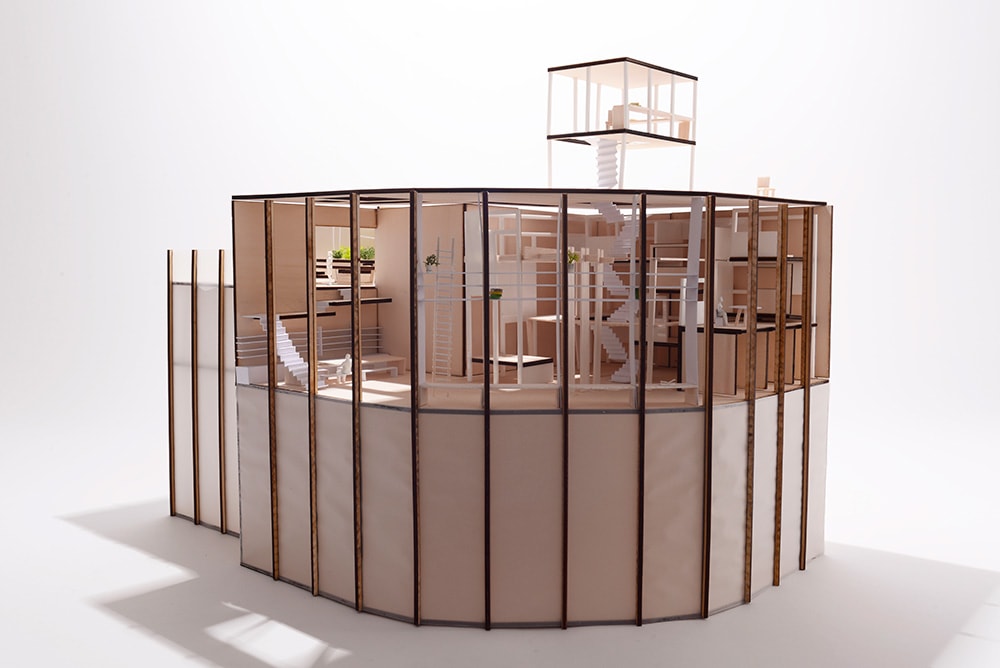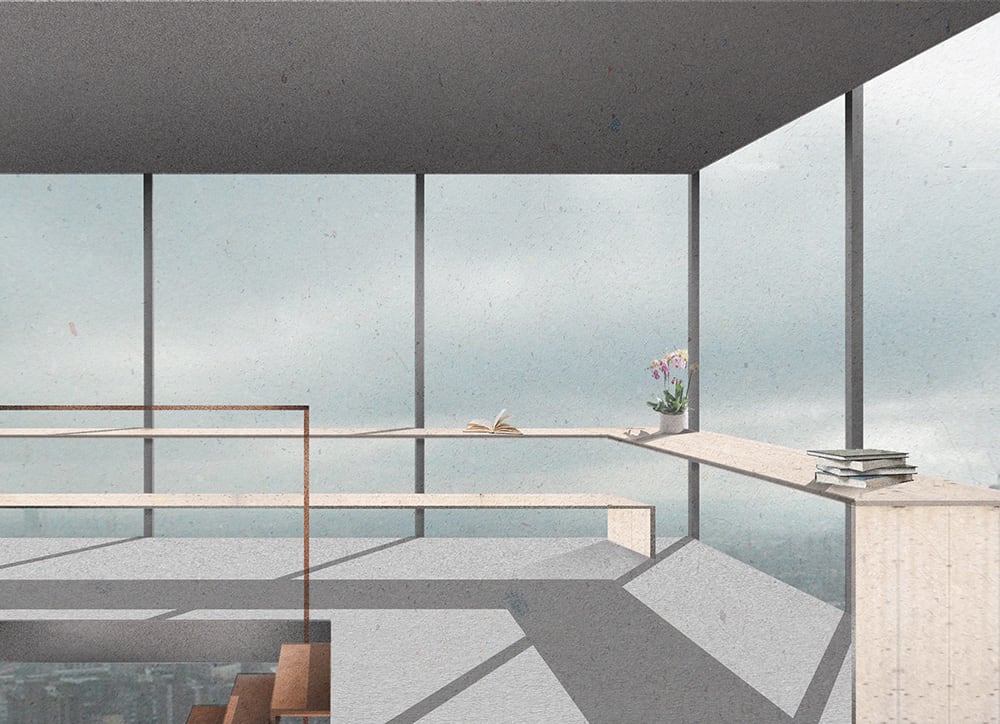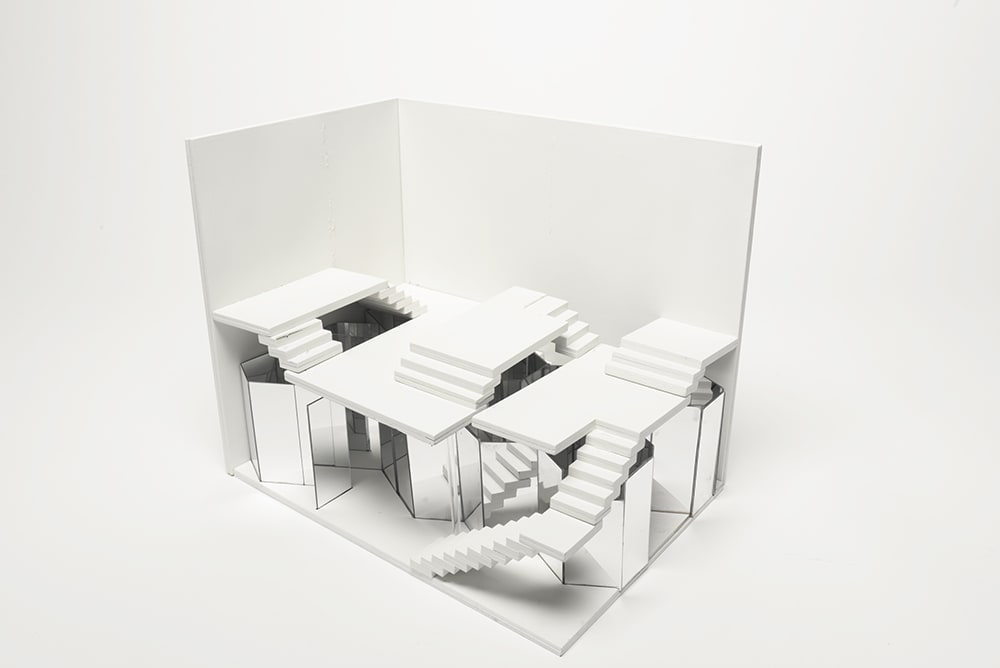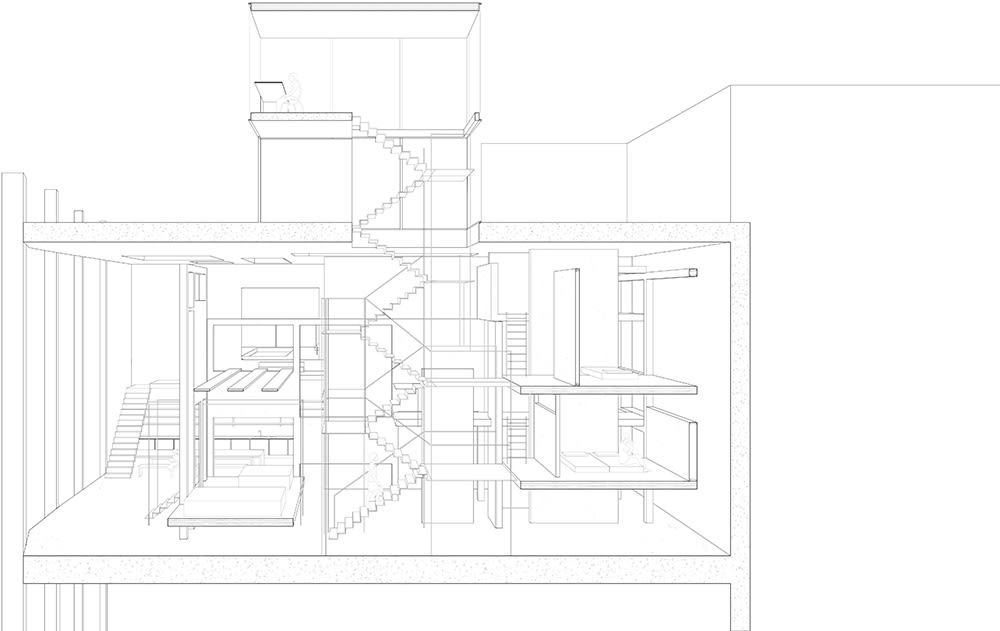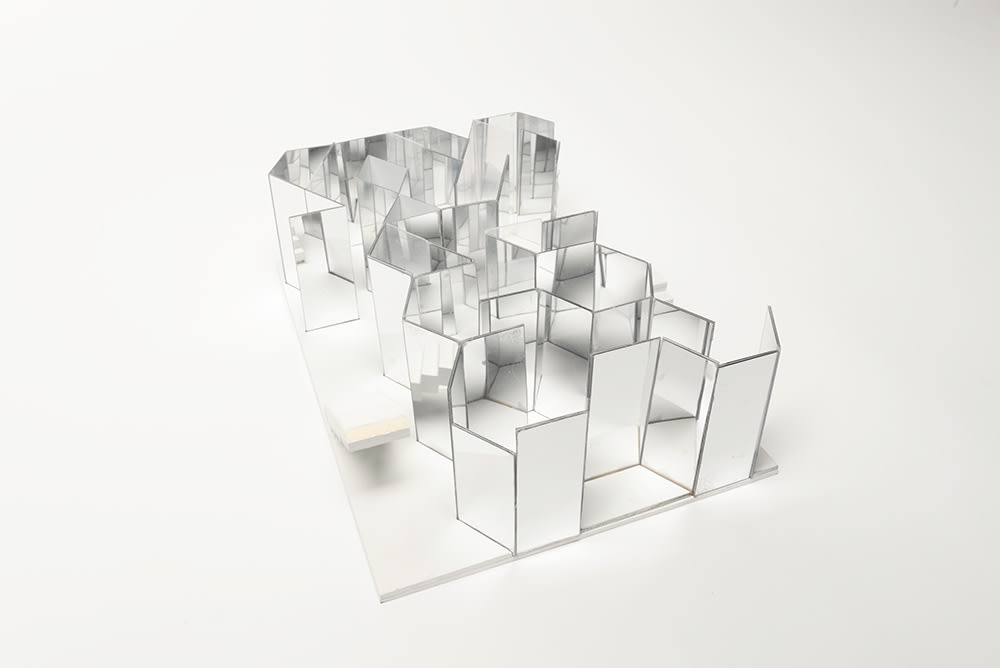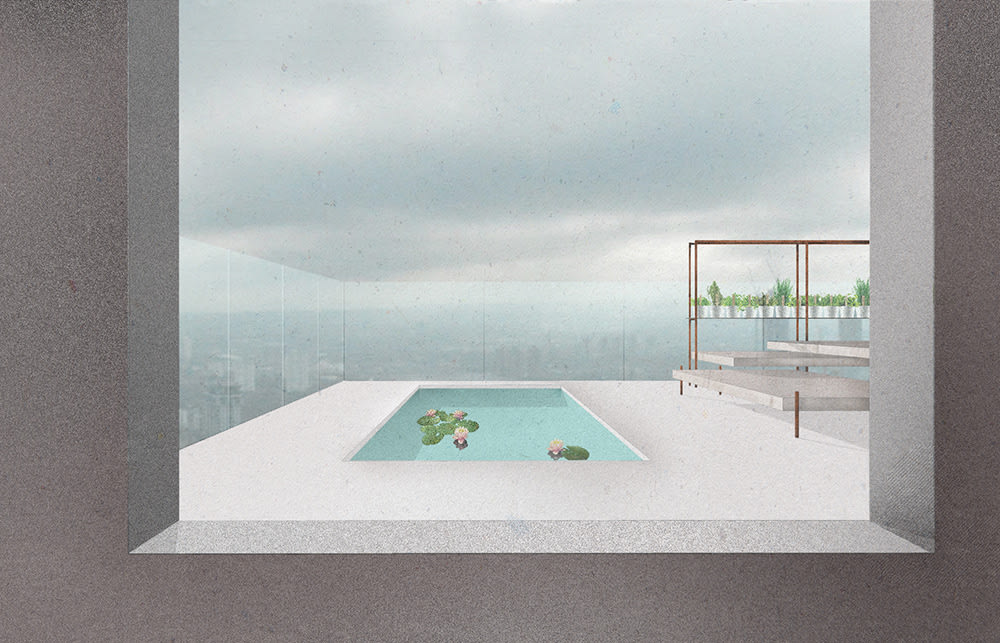Course units
Year 1
Unit 1: Introduction to Interior Design: methods and processes
This unit is an introduction to your course, the College and the University.
Unit 2: Design objects
The unit introduces you to the design of objects. You’ll explore ways in which the materials you use might inform and generate design ideas when designing products or furniture. You’ll produce technical drawings and sketch models. Experimenting with analogue and digital technologies, you’ll learn how to generate different types of imagery and modelling. You’ll make a physical model that responds to a project brief and provide supporting material showing evidence of your research and drawings. Written work will explore design ideas in relation to product or furniture.
Unit 3: Design media
The unit introduces you to tools for mapping, measuring, recording and experimenting with interior space. Using a range of digital and physical media, you’ll explore analogue and digital making processes. This will introduce you to strategies of depiction and interpretation, as well as methods for mapping and recording design data.
Unit 4: Design contexts
The unit introduces you to the relationship between users and their environments. It situates design within a social and cultural context. Examining a small-scale interior, you’ll undertake research to identify individual design practices. You’ll analyse an existing site and initiate a design proposal that includes research, drawings and models. Your written work will examine multidisciplinary design concepts underpinning your interior design research.
Year 2
Unit 5: Collaborative and collective practices
You’ll be introduced to different ways in which collaborative working can help you to focus and enhance your own creative strengths. You’ll have the chance to work with fellow students and creative communities.
Unit 6: Interior practices
This unit introduces you to a range of interior practices and theoretical principles. During studio workshops, you’ll explore planning processes, technical drawing packages and anatomies of practice. You’ll also learn about the career opportunities within the design sector, which will help you identify your final year specialism and career pathway.
Unit 7: Material and immaterial practices
This unit will deepen your understanding of the context in which design operates. You’ll explore different approaches to the analysis of space and learn how to use research methods to record and map design data. You’ll develop written work and a presentation to visually demonstrate your research process.
Unit 8: Public sphere practices
You’ll design a public interior, working from a live brief. You’ll create a sustainable design proposal that responds to the function and spatial organisation of a public environment. You’ll work in teams to simulate the experience of working in a professional design studio. You’ll present your proposal to industry practitioners. Written work will examine design theories to contextualise your design proposal. The unit will help you develop project management, communication, organisational and leadership skills.
Year 3
Unit 9: Professional futures
The unit aims to address the 3Es (employability, enterprise and entrepreneurship). You'll reflect on your learning and skills across the entirety of your study. You’ll have an opportunity to showcase your outcomes and intentions. You'll consider your next steps as you enter industry or continue with your education.
Unit 10: Programme research
The unit is made up of 3 components: enquiry, application and evaluation. You’ll undertake research and testing to analyse and scope out initial ideas. You’ll also produce written work to support your research. This will serve as the blueprint for your final programme proposal, which you’ll complete in unit 11.
Unit 11: Programme proposal
The unit is made up of 3 components: methods and processes, proposal testing and project presentation. Using the programme research as your foundation, you’ll produce a comprehensive proposal that examines all aspects of an interior environment. You’ll present your proposal at the College show.
Optional Diploma between Years 2 and 3
Between Years 2 and 3 of the course, you’ll also have the opportunity to undertake one of the following additional UAL qualifications:
Diploma in Professional Studies (DPS)
This optional diploma can be taken between years 2 and 3. With support from your tutors, you’ll undertake an industry placement for a minimum of 100 days/20 weeks. As well as developing industry skills, you’ll gain an additional qualification upon successful completion.
Diploma in Creative Computing
Between years 2 and 3, you can undertake the year-long Diploma in Creative Computing. This will develop your skills in creative computing alongside your degree. After successfully completing the diploma and your undergraduate course, you’ll graduate with an enhanced degree: BA (Hons) Interior Design (with Creative Computing).
Diploma in Apple Development
This optional diploma can be taken between years’ 2 and 3. You’ll have the opportunity to become an accredited Apple developer, undertaking a learning programme designed by Apple for UAL. After successfully completing the diploma and your undergraduate degree, you’ll graduate with an enhanced degree: BA (Hons) Interior Design (with Apple Development).
